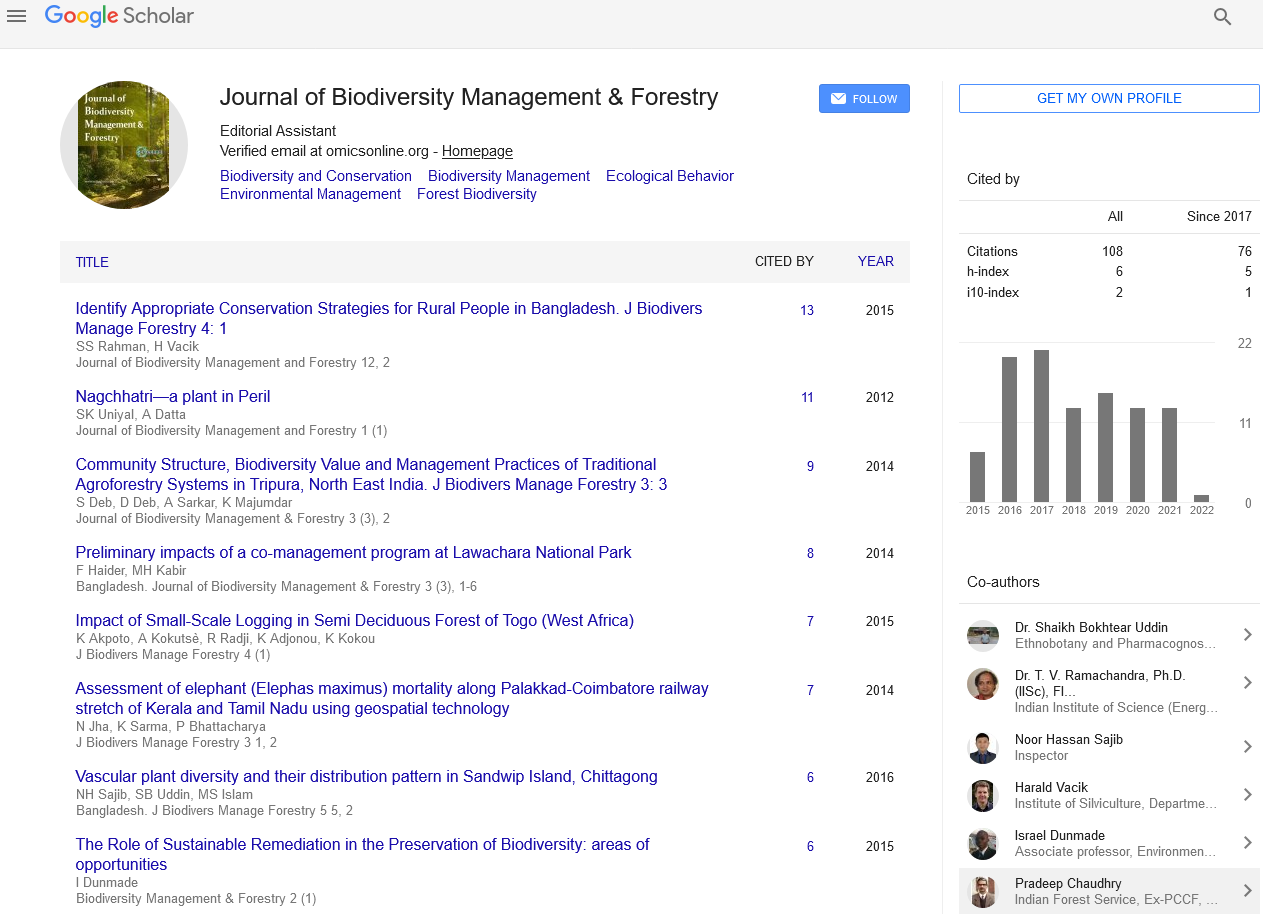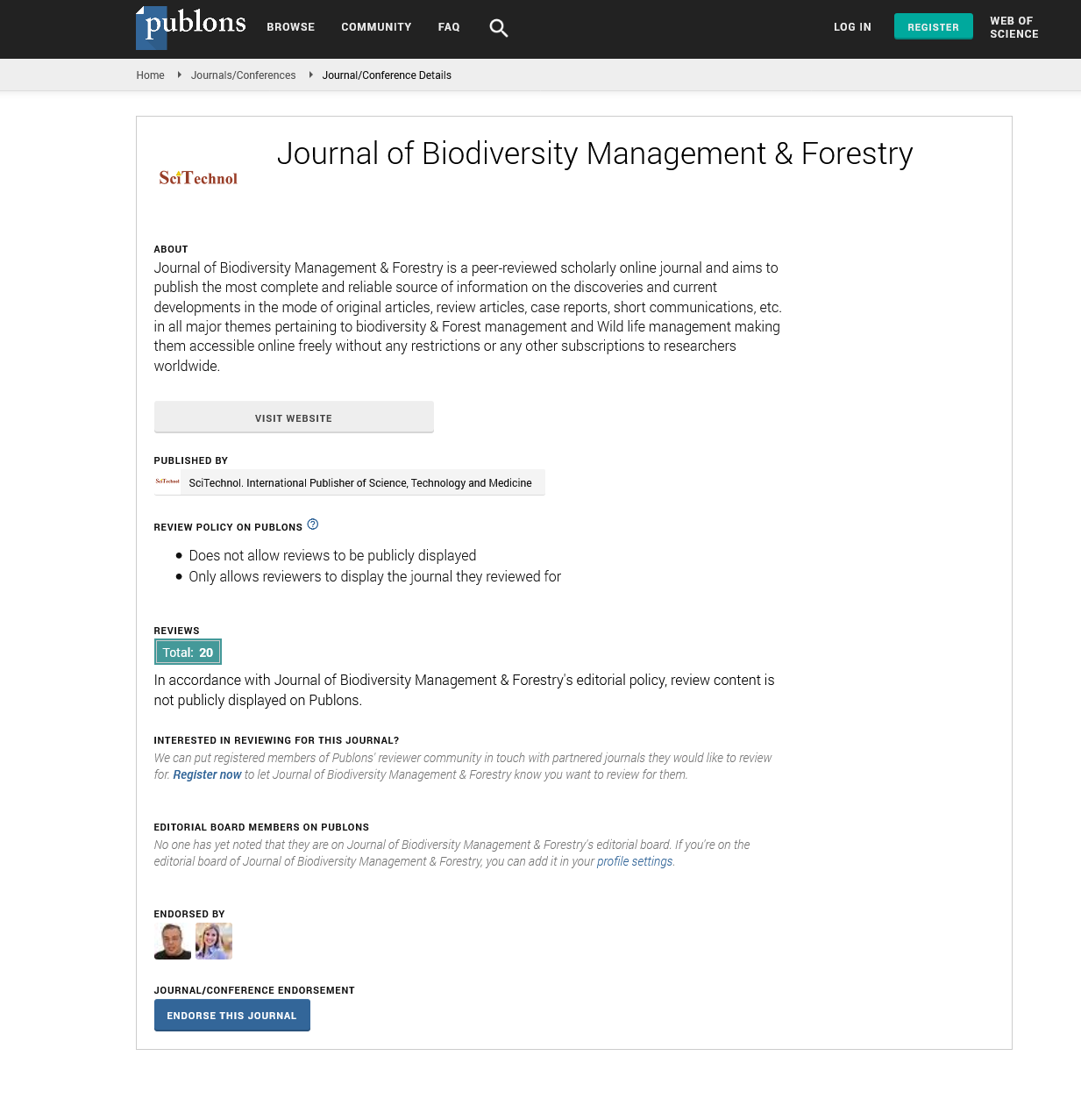Gender-based comparative study of health complications related to extreme weather events (ewes) during the 2017 flood in Bangladesh
Tasnim Jerin
University of Barishal, Bangladesh
: J Biodivers Manage Forestry
Abstract
Flood is one of the extreme weather events (ewes) of global climate change, which has been affecting health well-being detrimentally in flood-prone countries like Bangladesh, where two thirds of people are at risk of floods. The 2017 flood was catastrophic and posed serious threats to the health of vulnerable populations. Investigating the health scenario of flood from a gender perspective primarily, this study also tried to explore how interacting determinants such as water, sanitation, health care facilities and reproductive health services influenced the health of the flood affected people. The mixed-method research design was followed where, 280 males and females were interviewed proportionately and In-depth interviews, Focus Group Discussions, and Key Informant Interviews were administered in four villages of Jamalpur district. We found that, because of intense flooding over a month, 81% females and 56% males suffered from several diseases like fever, diarrhoea, and skin diseases. Economically incapable to manage sanitation facility, scarcity of safe drinking water and damaged water sources caused health complications among both females (96%) and males (81%). In the flood-prone areas, females and pregnant mothers suffered from distress and the lack of available reproductive kits. They took immediate health services from pharmacy and community clinic. Moreover, 92% female and 46% male respondents reported that persistent food insecurity appeared as a major problem in their households. Though the flood-prone people took different risk reduction approaches, unexpected constraints, such as lack of doctors, high price of food, and lack of available medicines during flood increased their exposure to flood. Findings thus suggested taking context-specific interventions, need-based health education, and providing available reproductive materials immediately for the mitigation of the healthrelated threats as not everyone and every area face the same extent of vulnerability.
Biography
Tasnim Jerin has completed her Masters and Honours in Disaster Management from the Institute of Disaster Management and Vulnerability Studies, University of Dhaka, Bangladesh. Currently, she is serving as a lecturer at the dept. Of Coastal Studies and Disaster Management, University of Barishal, Bangladesh. She is a young academician and researcher in the field of disaster management. She has presented her research works at international conferences and participated in many workshops and training program. She is passionate to work on exploring knowledge, attitude and practices of general people on climate change.
 Spanish
Spanish  Chinese
Chinese  Russian
Russian  German
German  French
French  Japanese
Japanese  Portuguese
Portuguese  Hindi
Hindi 
